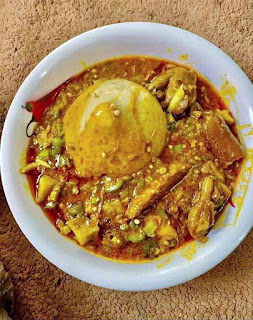Traditionally in the Ewe culture, respect for the elderly is very important to the people and it is also a characteristic feature of most tribes or ethnic groups in Ghana alike. It is the reason why when young people want to refer to the elderly who is a man or a male, the name of the person (the elderly) is mentioned with the title 'efo' or only the title 'efo' without even mentioning the person's name. It will be disrespectful on the part of any young person to directly call an elderly by his name. This was even strongly enforced in the olden days when even a child can't call his parents mummy or daddy as the 21st century children would do. All the information behind the popularity or fame of the name is discussed in this post including other equally famous Ewe titles or names.
The fame of efo
Efo is an Ewe word which is a noun and it means 'a brother' or just simply 'brother'. Literally, every male is 'efo' but it is most often an associated title to the older males or men. Largely in the region, the elderly can either be called by their name with this title added or just by the title 'efo' because it is a way of honouring a person especially a male . For instance, a young person or even an elderly can call Mr John Gafa as 'Efo John' or simply 'efo'. As for what has made this title so popular even among other cultures it might be that since the Ewe speaking people travel the other regions and continue this tradition of honouring males using this title, people got to love it and as they appreciate it they also begin to use it anytime they are interacting most especially with the Ewes over there. This is just a demonstration of how the people show respect to the elderly in society because throughout the region, the elderly are highly respected for their experience which is valued more than anything else. The words of the elderly are not a thing that is taken for granted at all.
A saying in the language goes 'Nu si ametsitsi nor akpasa me kpoa, ne devi de ati tame ha la, me le ekpor ge o'.
The translation is this: 'What an old person sits in a chair and sees, even when a young person climbs to the top of a tree, he will not see it.'
There are a few more titles to look at which are not popular but among the Ewes themselves, they are used very often unlike how the 'efo' has transcended the region to many other regions of the country.
Apetor/ dekakpui
This is a title for the males or men referring to them as the head of the family. and in English Language, this is known as Lord. Mostly married men are the most people accorded this title and are called by it when their names are to be mentioned at functions or public events in the community as a way of saying that the man is responsible.
Apenor
This is the direct opposite of 'apetor' and it refers to the woman as caretaker of the home. Before the name of any woman is mentioned mostly at events, to show honour and respect, this title is mentioned first before the name of the person follows. It is like saying 'Mrs' in English before the name of a woman who is married but it the lady is unmarried then she is referred to as 'tugbedz3'.
Dekadze
It is a title for youthful men in the society but upon transitioning to the adult stage or even after marriage, it becomes 'apetor'. Interesting to know is that even some elderly males want to be referred to as young or dekadze because even at their age, they still always advise the young ones how they would wish to enjoy again their youthful days. It is all because the youthful stage is full of energy and so even as people age they still want to be youthful so they could do more s they planned.
Well still on what possibly made the name, word or title 'efo ' so popular, in movies where Ewe men particularly form part of the cast, the title is used to refer to them even in the movies and could also possibly be among one of the reasons.
Furthermore, the name shows respect or portrays the act of humility not only among the elderly but even among young people. There is also a very important title known as Torgbui. It is a title for kings or anyone who is an elderly or has grown very old. Key figures that carry this title are the kings especially and a typical example is the paramount chief of Anlo Torgbui Sri III. The 'Torgbui' is the title and the 'Sri' happens to be like a stool name and the Roman numerals are used to show the ordinality. So from this particular name, the II means he is the second king.











Thank you
ReplyDelete